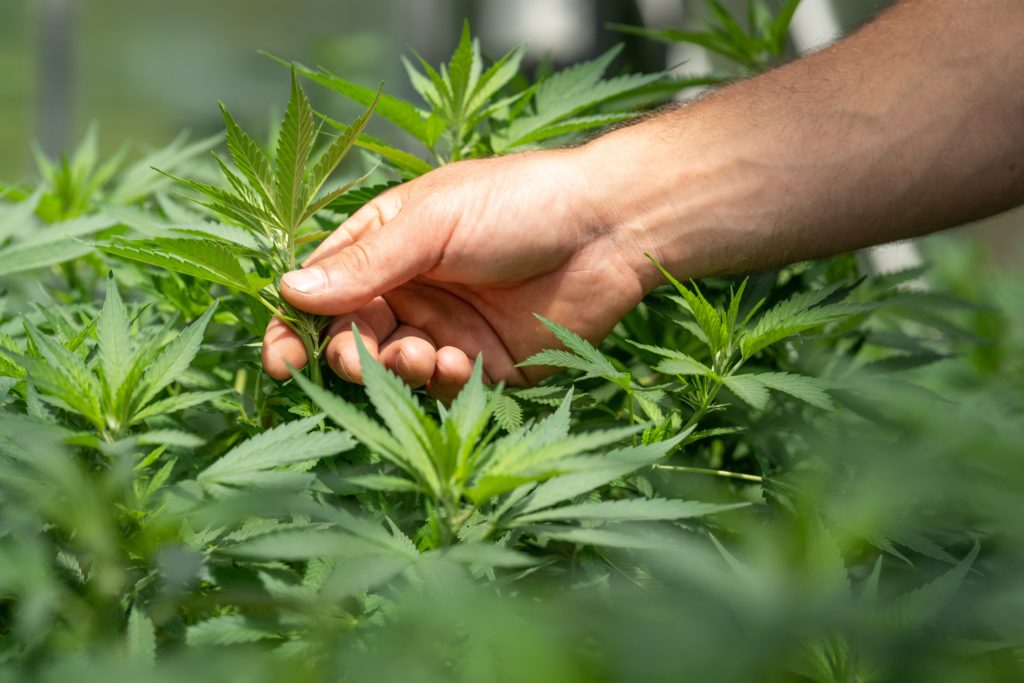Two state senators introduce first bipartisan bill to legalize the adult use of marijuana in Pennsylvania
State Sens. Dan Laughlin (R-Erie) and Sharif Street (D-Philadelphia) have teamed up to introduce bipartisan legislation that would legalize the adult use of marijuana in Pennsylvania.
Sponsors say the measure’s primary goal is establishing a fair and rational protocol for the legal and safe use, cultivation, and sale of marijuana. The bill sets the minimum marijuana consumption age at 21 and mandates age verification for every purchase.
The Pennsylvania Independent Fiscal Office says legalization would generate between $400 million to $1 billion in new tax revenue for the state annually. More than 60 percent of Pennsylvanians support adult-use marijuana legalization. However, proponents say the existing ban on cannabis impacts Pennsylvanians negatively at growing rates. Last year, the Pennsylvania State Police reported more than 20,000 adults were arrested for marijuana-related violations, an increase from 2019.
Street described the cannabis prohibition as “an expensive failure of public policy which has criminalized patients, personal freedoms and impacted generations in a failed war on drugs that continues to burden taxpayers with growing costs to our criminal justice system. This bill makes both moral and fiscal sense and prioritizes the people of Pennsylvania.”
READ MORE — Dan Bartkowiak: New push for legal weed uses old tactics: levying false claims, ignoring science and harm in other states
Laughlin and Street say they drafted the bill with extensive feedback from advocates and stakeholders across the state and committed to working with them to improve the proposal as it progresses through the legislative process.
“Through bipartisan support, Senator Street and I think we have found a way to get this vital legislation to the finish line. However, with most surrounding states passing legalization bills before losing revenue due to border bleed, it’s time to act now. While the increase in revenue could raise around a billion dollars a year, the most important thing to me is that the industry will create thousands of family-sustaining jobs that we so desperately need,” Laughlin said. “That’s why after almost a year of working with Senator Street, advocacy groups, and constituents, we have introduced SB 473, which we believe is the best option to legalize recreational marijuana in Pennsylvania.”
The bill erases non-violent marijuana convictions and decriminalizes marijuana up to a specific limit. It also authorizes farmers and craft growers across the state to engage in cultivation.
“I support this legislation as long as we use the same laws attached to alcohol use,” said state Rep. Nancy Guenst (D-Hatboro), when asked to comment.
Larry Weigand, who is running for sheriff in Delaware County, says he has not seen the bill but has some reservations.
“Right now, this country and our area, the Delaware Valley, is in the grips of a pandemic and an addiction crisis. We have had dramatic increases in opioid abuse, addiction, and death,” said Weigand. “I have not viewed any bill or proposal for legalization that has addressed the multiple underlying issues that accompany recreational use drugs. I understand the social views of marijuana use have changed over the years, but the social views of intoxication and driving under the influence have not; to the contrary, they have become more stringent. Any consideration of legalization has to address these issues as well. The Senate needs to be considerate of both sides of the issues, as opposed to just passing a bill without providing due consideration for all who will be affected, including the non-users of marijuana and law enforcement.”
‘… The social views of marijuana use have changed over the issues, but the social views of intoxication and driving under the influence have not; to the contrary, they have become more stringent.’
Former Upper Darby Police Chief Mike Chitwood said the idea of legalizing recreational use of the drug is bad news for the state.
“From a law enforcement perspective, marijuana has always been considered a gateway drug,” Chitwood said. “I think when you look at places that have legalized marijuana the way Pa. wants to do, there are more increases in crime, more DUIs…What marijuana has done to society, it has put another crimp in sobriety.” While he is not against medicinal marijuana under a doctor’s supervision, “most heroin addicts will tell you they started with marijuana and went on to other drugs, always searching for a high.” Although he agreed that, of course not all marijuana users continue on to harder drugs, many “experts who recommended legalization of marijuana now regret it.”
U.S. Rep. Mary Gay Scanlon (D-Delaware County) said, “In recent years, states have led the way on responsibly regulating marijuana for medical and recreational use, but the failure of the federal government to keep pace has impeded state efforts. I am glad to see a bipartisan effort in our commonwealth to address our evolving understanding of the issues involving marijuana use.”
“It is particularly encouraging that the proposed bill goes beyond establishing standards for safe and legal consumption to address the harm done to individuals and communities most impacted by the war on drugs,” Scanlon added. “I look forward to the United States Congress building on the work being done in the states to finally bring our federal marijuana laws into the 21st century and remove federal impediments to state legislation addressing this issue. That is why I have cosponsored the SAFE Banking Act, which passed the House earlier this year, and the MORE Act, which I voted to advance out of the House Judiciary Committee last month.”
Blake Barstar is a freelance writer living in Malvern.
This article was republished with permission from Delaware Valley Journal.




